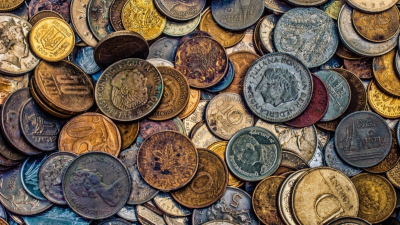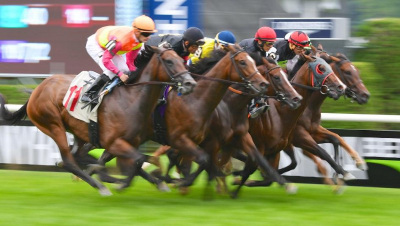Hi Peter, thanks for the opportunity to talk to you about cryptocurrencies and especially the Cardano project, which is being developed by the IOHK team, of which you are part. Can you tell us something about yourself and your IT background at the beginning of the interview? How did you get a job for IOHK and have you considered this offer for a long time? Have you been interested in crypto before?
Before working for the IOHK, I did academic research in cryptography, so I am one of those for whom "crypto" used to mean "cryptography" and not "cryptocurrencies". I studied theoretical computer science at Mathematics and Physics Faculty in Bratislava, followed by a doctorate at ETH Zürich and then worked as a postdoc at IST Austria in Vienna. Here I have already devoted myself marginally to theoretical work on cryptocurrencies: I collaborated on the design of SpaceMint, which was one of the first attempts to build a cryptocurrency on proofs of space.
IOHK is an international team. How do you arrange work? How do scientists and developers communicate with each other? After all, it's just different than when it's a company in Bratislava, where you and your colleagues would meet every day in the same office.
Everyday communication in IOHK works completely online, we use standard tools: video calls, Slack, emails and so on. Especially within the research team, meeting at conferences is important, both with fellow researchers from the company and with the rest of the academic community, who present our results and get to know their work in the other hand. So personal contact still plays an important role in this.
How much has the pandemic situation around COVID-19 affected your work?
My everyday work was minimally affected because I had previously worked from home. Of course, traveling to conferences and meeting colleagues was no longer possible, but there was a clear effort by the community to deal with the situation as best as possible; for example, one of the most prestigious cryptological conferences, Eurocrypt, took place in a slightly modified form completely online a few weeks ago.
You yourself are the co-author of several scientific papers published by the IOHK, the last of which is Hydra: Fast Isomorphic State Channels. Who initiates this work and selects the circle of scientists who will participate in it? Do you have the opportunity to choose what you want to work on? In a team of several scientists, the review process must be very lengthy, how many months did this particular work take?
The main research coordinator at the IOHK is our chief scientist Aggelos Kiayias, who is also a professor at the University of Edinburgh. We try to cover all areas of research that may be relevant to Cardano and its wider context in the future, and individual teams for specific research questions are usually formed naturally based on the interest and previous experience of individual scientists. So, it is actually very similar to research work in a university environment, with the difference that the subject of research should be somehow related to the area of interest of the IOHK.
How difficult is it to convert some scientific work into source code? And on the other hand, how much mathematical code verification slows down your work?
The design of a protocol in the form of a scientific article, in which I also participate, is only the first step on the way to the final product. All parts of this process are extremely important for the result; even the best-designed protocol will not be secure enough if implementation errors are made. And similarly, a poorly designed protocol will no longer be saved by good implementation.
Therefore, on the correctness of the implementation is attached great importance in the IOHK, which means that it takes some time.
What benefit do you see in a blockchain company employing academics? Do you think that publishing scientific papers the way the IOHK does is a good way to find the right solutions? Is the opposition to such works beneficial for finding the right conclusions?
I think this is the only right way in the long run. Information security (and especially cryptography) is governed by "Schneier's law", that everyone can design a cipher or protocol that he himself cannot break. Therefore, it is crucial to stick to the methodology of "demonstrable security" and to prove the security of ciphers and protocols mathematically, but also to get as much feedback as possible from other experts dealing with similar problems, because even proofs can contain errors.
Of course, feedback can also be collected on blogs or Reddit, but the academic community already has mechanisms in place for this purpose, which usually work more reliably: reviews, conferences, and the like.
Also, no one uses their own cipher to connect to internet banking, but TLS, which is based on decades of academic research. The same is true when designing cryptocurrencies: no one cares that the hash functions or digital signatures used by Bitcoin are the product of academic research. I see no reason why this should be any different for consensus-finding algorithms or scaling efforts.
Of course, this does not mean that everything that comes out of the academic environment is a hundred percent true, but it is the most proven way to move our knowledge forward.
Can you tell us, until when the active development of the IOHK is expected? Or vice versa - is there a deadline from which the IOHK will be less involved in the development of Cardano, perhaps the completion of the Voltaire era?
I don't think the IOHK plans to slow down in the development of Cardano until it's a finished product that can be passed on to the community.
Would you like to say something to our Czechoslovak community that is interested in Cardano? Can we meet you at a meeting in Bratislava, Prague or Brno?
I am very glad that our work has its supporters in the Czech Republic and Slovakia and the opportunity to meet will definitely be found because I used to travel to Prague and Brno quite often before the pandemic.
Thank you, Peter, for your answers and we wish you and the entire IOHK team a successful continuation of the work on Cardano!
Source: Interview: Peter Gaži | Was the development of Cardano affected by the COVID-19 pandemic?
 Cardano can remind the world what adoption of crypto is really about
Cardano can remind the world what adoption of crypto is really about Do not overlook Cardano
Do not overlook Cardano The advantages of using ADA coins as a scarce resource
The advantages of using ADA coins as a scarce resource What is Cardano Staking
What is Cardano Staking